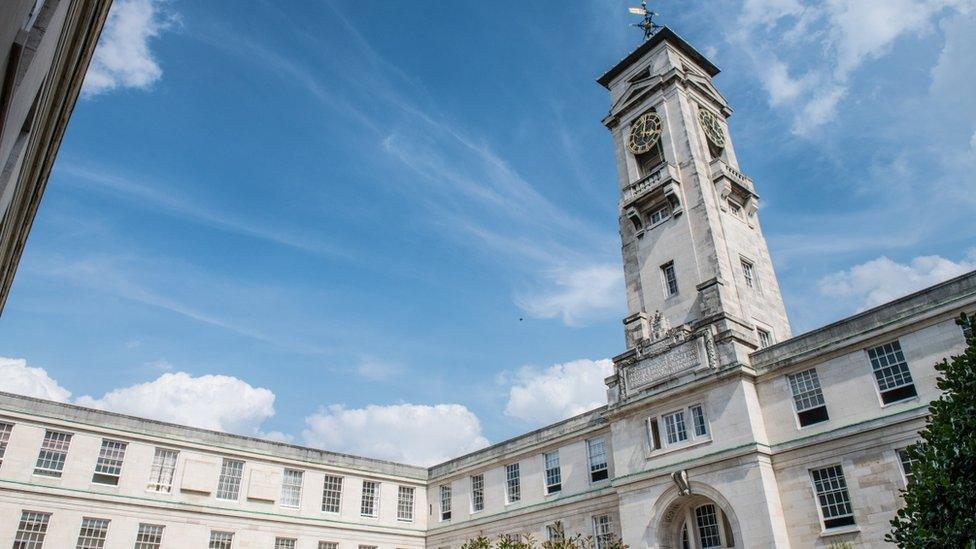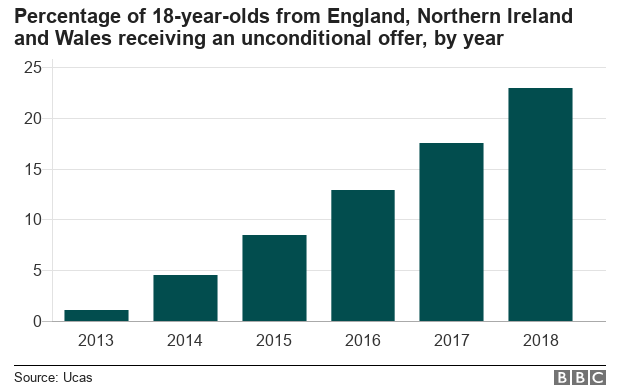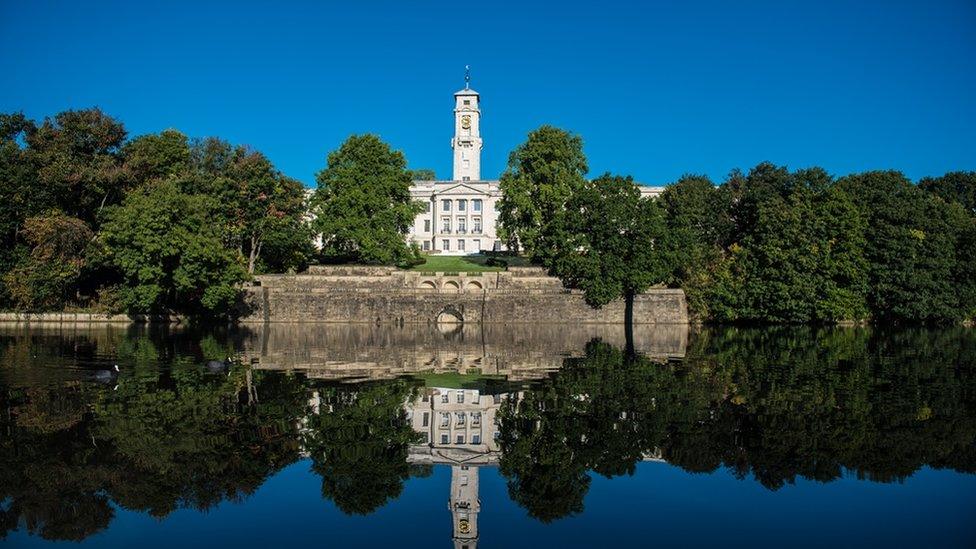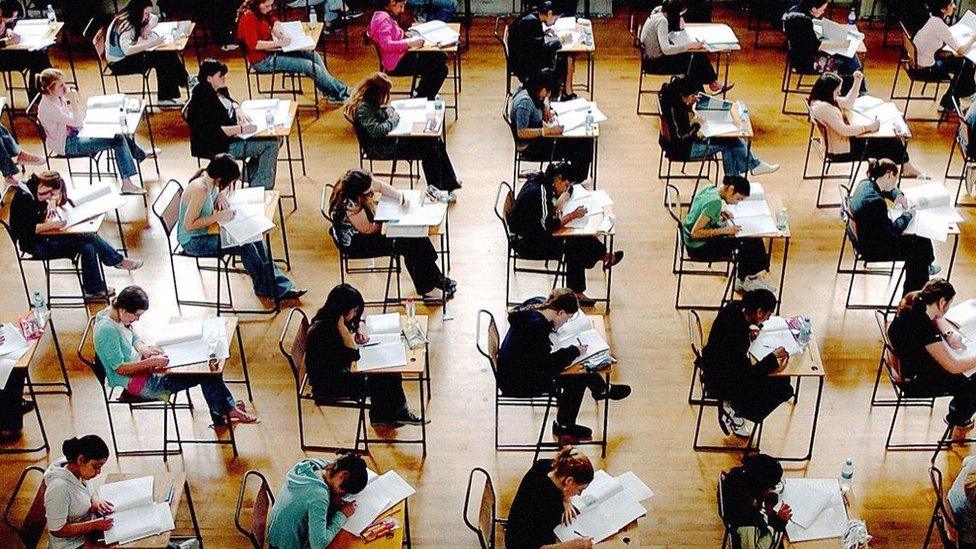University of Nottingham ends unconditional offers
- Published

Unconditional offers came under fire after it emerged nearly a quarter of applicants nationally received such an offer
A university will stop unconditional offers to all prospective students unless they already hold their qualifications, it has been announced.
The University of Nottingham has confirmed it will end the controversial admissions policy from this September.
The widespread practice was criticised last summer when it emerged nearly a quarter of applicants nationally received such an offer.
The university said using unconditional offers was "no longer relevant".
A spokeswoman said unconditional offers initially proved useful in attracting applicants from disadvantaged backgrounds and delivered modest gains in student recruitment in targeted subjects.
"However, with many applicants now receiving three or more unconditional offers from different universities, Nottingham's use of unconditional offers to demonstrate the university's faith in particularly talented applicants is no longer relevant," she said.

The University of Nottingham said it would honour unconditional offers already made
The university was also concerned about the reported variation between predicted and actual A-level results for some who received unconditional offers from universities, indicating that some "may lose motivation" before exams.
Unconditional offers already made will be honoured and the university said it would also explore greater use of "contextual offers" - where a person's background was taken into account - to attract applicants from disadvantaged areas.
Dr Paul Greatrix, University of Nottingham registrar, said: "Selective universities like Nottingham will always compete legitimately for talented applicants. However, we want everyone to be fully confident that they are admitted purely on their merits and potential."
He added: "The most accurate way of securing applications lies in the sector adopting a post-qualification admissions system - a concept that Nottingham has supported for more than a decade."

In 2018, admissions service Ucas revealed unconditional offers to 18-year-olds from England, Northern Ireland and Wales had risen from 2,985 in 2013 to 67,915 in 2018.
In the same year, the University of Nottingham made 3,150 unconditional offers from a total of 52,000 offers.
Of this, they accepted 839 students on unconditional offers from a total intake of 14,000.
A report from England's higher education watchdog, Office for Students (OfS), external, said universities in the East Midlands had been giving out more unconditional offers than any other region in the country.

In 2018, the University of Nottingham made 3,150 unconditional offers from a total of 52,000 offers
The OfS compared universities' "indiscriminate use" of unconditional offers to pressure selling and said it was potentially in breach of consumer law.
OfS chief executive Nicola Dandridge said: "There may be some good reasons why universities make unconditional offers to particular students, so we would not necessarily expect to see a blanket halt on the practice.
"But where universities consider that unconditional offers might not be in their applicants' best interests, then it is welcome to see them changing their approach."
The Russell Group of universities, to which Nottingham belongs, said its members only accounted for 5% of all unconditional offers made and entry requirements were for individual institutions to decide.

Follow BBC East Midlands on Facebook, external, on Twitter, external, or on Instagram, external. Send your story ideas to eastmidsnews@bbc.co.uk, external.
- Published30 January 2019

- Published26 July 2018

- Published25 January 2019
